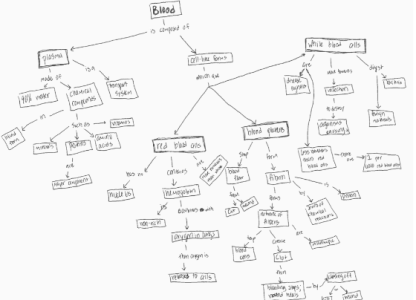Of course it is meant to be a provocative title. It is adapted from the very first paper I read on retrieval practice back in 2011 via the Purdue Newsroom. It was the press release that first got me interested in retrieval practice as a learning strategy.
“Our new research shows that practicing retrieval is an even more effective strategy than engaging in elaborative studying.
Dr Jeffrey D. Karpicke – purdue.edu/newsroom
The press release gave a decent account of the findings but here is what lies behind the study
Eighty undergraduates, a 276-word science text on “Sea Otters.” Four learning conditions with 20 participants assigned to each condition.
Initial Learning: Participants read the passage on sea otters for five minutes. Assigned to one of four study groups.
- Study-once group: Students did nothing beyond the initial five-minute reading period.
- Repeated-study group: Students read the same text during three additional five-minute sessions, with one-minute breaks between sessions.
- Concept-mapping group: Students were instructed to spend 25 minutes after the initial reading period mapping out the text’s main concepts on a sheet of paper.
- Retrieval-practice group: Students were instructed to spend 10 minutes after the initial reading period listing any information they remembered from the text in a response box on a computer screen. The students then reread the text for another five minutes and were again asked to list the information they remembered.

The study examined whether retrieval practice, (alternating between reading a passage and writing memorable information from that passage) improved learning of the science passage more than the study-once, repeated-study, or concept–mapping techniques.
One week after the experiment, participants were given a test that contained both factual and conceptual questions about the science passage they had read.
Results
Retrieval practice scored significantly higher than students using the study-once, repeated-study, and concept-mapping techniques on two tests. The average percent of correct test questions for each group was 67% for retrieval practice, 27% or study once, 49% for repeated study, and 45% for concept mapping.

Given the Purdue Newsroom coverage of the study, we also have commentary from Dr Karpicke who was quoted as saying,
The final retention test was one of the most important features of our study because we asked questions that tapped into meaningful learning. The students answered questions about the specific concepts they learned as well as inference questions asking them to draw connections between things that weren’t explicitly stated in the material. On both measures of meaningful learning, practicing retrieval continued to produce better learning than elaborative studying.
Dr Jeffrey D. Karpicke – https://www.purdue.edu/newsroom
It is also worth noting that, contrary to the results, the Purdue undergraduates thought that elaborative studying with concept mapping would be the best strategy (an illusion of competence). In fact the highest judgments of learning (JOLs), significantly higher than the other three conditions, were awarded to the repeated study condition.
Students in the retrieval-practice and concept-mapping groups received equal amounts of study time, but both groups had more time to learn the text than students in the study-once and repeated-study groups. This unequal amount of study time, rather than the study approach, could have caused the differences in outcomes.
Time travel forwards to 2016 and a Psychological Science Agenda Brief: A powerful way to improve learning and memory explains further – that practicing retrieval enhances long-term, meaningful learning.
…recent work has shown that retrieval is critical for robust, durable, long-term learning. Every time a memory is retrieved, that memory becomes more accessible in the future. Retrieval also helps people create coherent and integrated mental representations of complex concepts, the kind of deep learning necessary to solve new problems and draw new inferences.
Dr Jeffrey D. Karpicke
Here Dr Jeffrey D. Karpicke explains the two tests.
- Short-answer questions aimed at measuring meaningful learning, verbatim questions which assessed concepts stated directly in the texts, and inference questions, which required students to make new connections across concepts.
- On the final assessment, creating a concept map, often used as an assessment of the coherence and integration of students’ knowledge.
Dr Jeffrey D. Karpicke is crystal clear in his conclusion
Retrieval-based learning is an effective method for improving meaningful learning.
Dr Jeffrey D. Karpicke
Karpicke, J. D. / Blunt, J. R. (2011): Retrieval Practice Produces More Learning Than Elaborative Studying With Concept Mapping, Science, 331, pp. 772–775.
Experiment 1: Sample questions from text on “Sea Otters”
Verbatim Question:
“What does sea otter fur consist of?”
(Answers: Sea otters have a double-layered fur, with a coarse outer layer and a finer inner layer)
Inference Question:
“What would be the consequences of removing sea otters from their environment?”
(Answers: There would be a lack of protection of kelp and seaweed, because fewer otters would eat the invertebrates that destroy kelp and seaweed. The presence of more invertebrates would change the ecosystem.)


